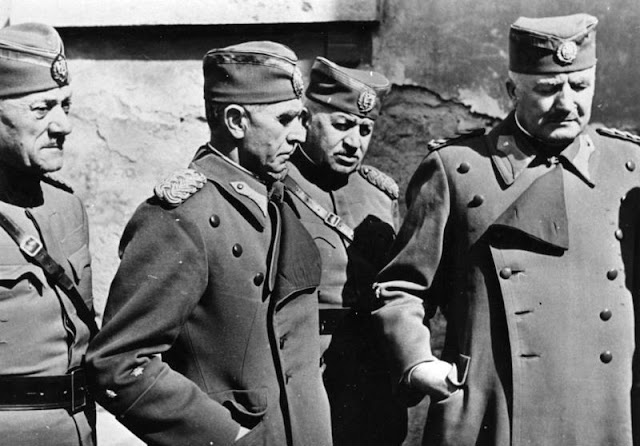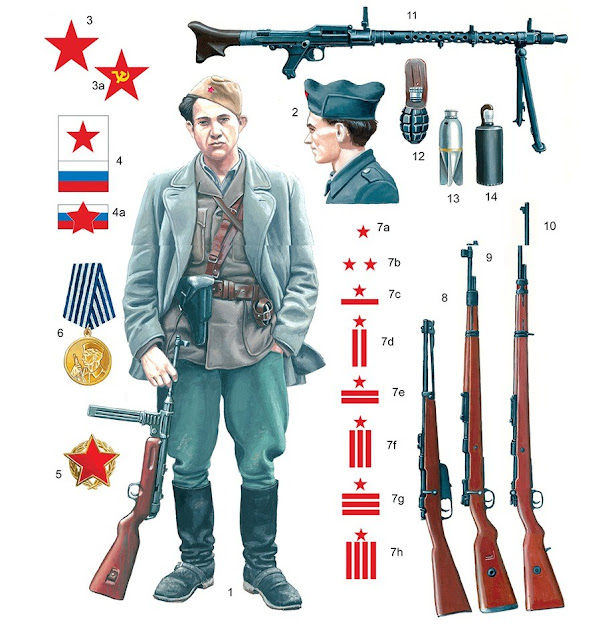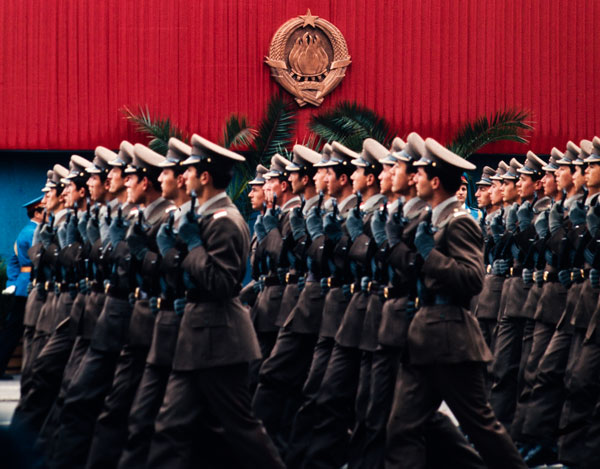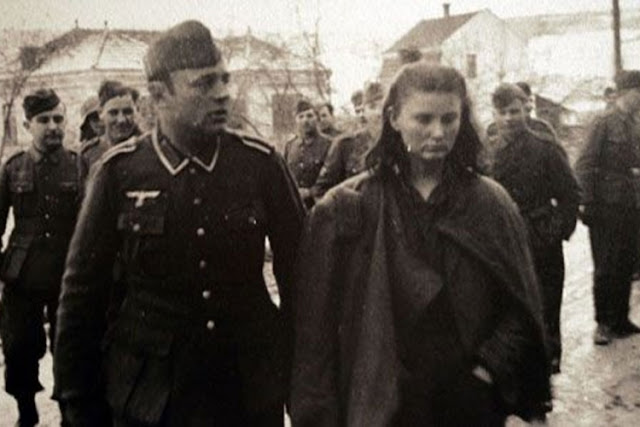Unconditional surrender of Yugoslavia in 1941 - imposed conditions of surrender
 |
| Captured Yugoslav officers before their deportation to Germany |
"PROVISIONS ON THE CAPITULATION OF YUGOSLAVIA ADOPTED ON APRIL 17, 1941. FROM THE GERMAN-ITALIAN ARMED FORCE AND THE REPRESENTATIVES OF YUGOSLAVIA ”
PROVISIONS ON THE ENFORCEMENT OF A PEACE BETWEEN THE GERMAN
AND YUGOSLAV ARMED FORCES
1) Main provisions:
By signing the armistice
agreement, the Yugoslav Armed Forces has to capitulate unconditionally and be
taken prisoner of war. To that end, the commanders of the units will report to
the nearest German officers.
2) Organization of the evacuation of
prisoners:
Troops are to be collected by
units where they are located. Until the surrender, the Yugoslav officers are
fully responsible for discipline and order and therefore remain with their
units.
Soldiers who leave their units
after the armistice is concluded will be sentenced to death.
3) Surrender of weapons and all
war material:
Weapons and war materials remain
in principle with the respective units. They will hand him over only when it is
ordered by certain organs of the German armed forces.
4) Reports:
By April 25, 1941, a report is to
be submitted on the following points:
a) In which places are the
individual collected units located?
b) Where are the artillery,
automobile, quartermasters, and other warehouses?
c) Where are the minefields
placed?
e) Where were the preparations
made for the demolition of bridges and other structures?
5) Wireless and wired
connections:
All means of communication shall
be used exclusively for the "implementation of the terms of the
armistice." For the purpose of controlling wireless traffic, the frequency
and wavelength are to be informed. Only the submission of open dispatches is
allowed.
6) Food and equipment:
Until the surrender is completed,
the Yugoslav Supreme Command will take care of the nutrition. filed kitchens
stay with their units in principle, and they will take them with them even
after the surrender. In addition, all soldiers have to bring the proper
equipment (overcoats, blankets, cutlery). Nutrition, including livestock feed,
should be provided in 6 days as much as possible.
7) Handing over of horses and
livestock:
Horses and livestock are also to
be collected by units, provided they are not used to harness field kitchens.
8) Sanitary measures:
The Yugoslav Supreme Command is
responsible for all measures in the medical sense. All units, in particular,
will have the appropriate medical officers and medical staff. The location of
the hospital is to be reported.
9) The Danube River Flotilla is
to be collected in the Zemun port by April 25, 1941.
10) Release of prisoners and
internees:
All German, Italian and Hungarian
prisoners, and internees are to be released immediately.
11) Submission of documents:
All missing acts in the
presidency of the government, the Ministry of Foreign Affairs, and the Ministry
of the Army must be submitted within 3 days at the latest. Storage locations
are to be announced. The complete and undamaged delivery of these documents is
guaranteed.
12) Gendarmerie and police:
The bodies of the gendarmerie and
the police, who had to leave their peacetime places with the retreating troops,
have to go to their regular duty immediately.
In their peacetime places, they
must immediately report to the German garrison troops. For the return, which is
to be carried out without weapons, motor vehicles may be used if there is more
than a daily march. These must be marked with white flags, and drivers must be
provided with travel documents.
13) Surrender of land and coastal
fortifications:
All land and coastal
fortifications are to be handed over with weapons, ammunition, materials, and
plans, as well as facilities of all kinds.
14) Outlawry:
Military personnel is prohibited
from leaving the country. Whoever participates in the fight against the Axis
powers will be treated as an outlaw.
It is further forbidden to take
ships, weapons, equipment, and aircraft to a hostile or neutral foreign country.
15) Yugoslav Navy:
The Navy remains in its ports.
Mine and coastal barriers are to be identified. The Navy's defenses are to be
surrendered. The exit of merchant ships is prohibited. Ships in voyage are to
be called back to the Yugoslav or ports of the Axis Powers. The carrier of the
Dragon seaplane has surrendered.
16) Prohibition of aircraft
take-off:
* Aircraft are prohibited from
taking off. Any takeoff will be considered an act of hostility.
17) All arrangements and
facilities of the military force and the economy, including means of transport,
must be handed over undamaged.
18) Beginning of the armistice:
The armistice agreement enters
into force 15 hours after the signing, i.e. April 18 at 12 o'clock in German
summertime. The movements of German troops are not interrupted by this. When
resistance is resumed, this agreement becomes invalid and the combat actions of
the German military force will be renewed with the greatest intensity.
Signed April 17, 1941. at 9 p.m.
By order of the Supreme Commander
of the German Army
By order of the Yugoslav Armed
Forces
Army General Maximilian von
Weichs
Aleksandar Cincar Markovic
General Radivoje Jankovic
Sources:
en.wikipedia.org
savremenaistorija.com





Hello!!
ReplyDeleteUseful blog. thank you for sharing to us.
tractor